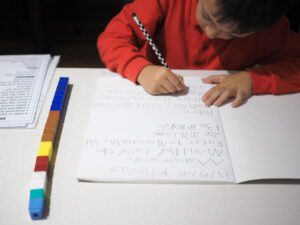Introduction
I often wonder about our special ability to help students not only learn but to also understand and apply this knowledge in their daily lives. Parents often wonder what kids do when there is no homework. After all, given the way school was for us it has to be an epic game changer. Correct, thus be said – Icelandic children get out of school only with removal of the books!That statement, however, might sound rash to some, but that is what the pillar of the Icelandic education system is, what makes it different from the majority, in the sense that it supports balance in childhood and student well-being. Therefore, get ready to participate in a radio show that will lead us on the Icelandic education and experiences tour!
The Next Significant Step: Pondering Homework – from inside my memory box to the future

This strategy comes from the Nordic educational philosophy, under which a mental well-being in a holistic learning environment is stressed. Because they are based on how it emerged in90’s when they started worrying about pressure and stress homework was doing to students. Some studies show that students who stayed in the classroom until a certain time of the day were not only not making better grades than their peers who studied at home but were also less focused during the classes. Surprisingly, it may have the opposite effect on children’s cognitive development, causing them to stagnate and be socially underdeveloped; they may have an unhealthy work-life balance too.
Contrary to the created situation, the Icelandic education system proved to be the strong one by radically involving a play-based approach during the classes. This implied that there was a need for more time allotted to play in the early school years, such as that which encourages critical thinking, problem-solving, and enhances teamwork skills. The play should be practical and is supposed to be genuinely fun for both students and the teacher.
:The Changing Scene-the means of effect today.
In fact, the broken school day, Iceland excludes homework.
The emphasis will be put on skills, knowledge, and values that a child has accumulated within school-time. This includes a strong emphasis on:This includes a strong emphasis on:
Project-based learning: Students collaborate on projects that cultivate collective work, wherein knowledge is operationalized to real life.
Outdoor activities: Layers of Iceland inspired classroom, there are numerous expeditions and exploration sessions offered, which gradually help to create a connection between the subject and nature.
Arts and creativity: In a similar way to drama, visual arts, music is central to a very deep mental development process in which imagination and self-expression are inextricably linked.
Physical activity: The place of physical education in the curriculum is of particular importance for it contributes not only to good performance but also fosters the teamwork and reasoning abilities.
Those significant in the conscious shift to a more holistic approach, produce some strange manifestations. It is further mentioned that a report of OECD in 2018 indicates that Iceland often tops the charts in terms of student well-being and has the lowest rate of dropout among the students. Beside each report, it shows that Icelandic students also perform well in international assessment like PISA [2].
Besides this, it should be remembered that the system will be advancing forever. They (educators and policymakers) is constantly at finding better possible methods. The upcoming government policies, apparently are slated to advance personalized learning as well as coming up with ways on how students’ needs can be attended to individually. Technology is being realized more profoundly as opposed to being just a mere basis to stimulate learning and environment dynamism.
FAQ
Q: Does it imply that the Icelandic kids occupy themselves with problematic things and never study at all?A: Not necessarily. Although no pupil is compelled to do, some might decide to go over previous concepts or take up learning that is more broad. The stress is brought upon oneself as well as initial pressure that might arise.
Q: Haven’t kids ignored past regular study days and just used to get by?
A: Icelandic curriculum is meant to ensure that the learner masters subject matters within the stiper time of school lessons. Teachers do live and breathe each lesson as they incorporate various active and cooperative learning methods to sustain the process of learning. On the other hand, the fact that Icelandic children present a superior information processing skills, by being inquisitive and reflecting and submitting them to their world outside of the classroom.
Q: Is it not so great on the contrary, with the follow-up question of whether it can be replicated in other contexts?
A: Every educational system is different and it is not only modelled after the current cultural practices, but also designed to address societal needs. Although, it is Icelandic model which can successively provide us with points to putting together the system. It stresses the paramount importance of children’s safety, believing in pre-school education methods which involve different approaches.




